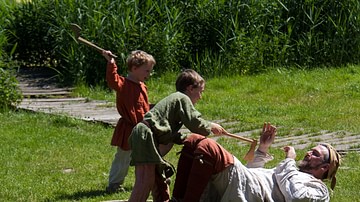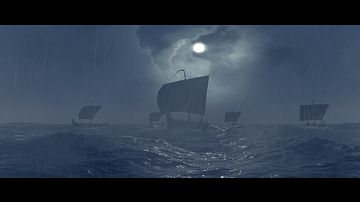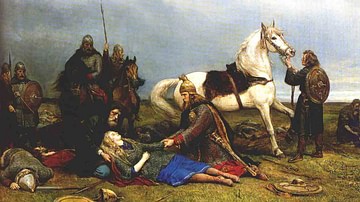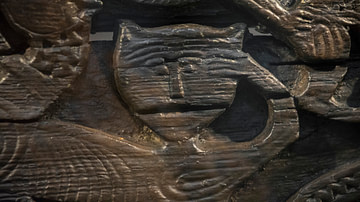Search
Search Results

Article
Twelve Great Viking Leaders
The Viking Age (c. 790-1100 CE) transformed every aspect of the cultures the Norse came in contact with. The Vikings usually struck without warning and, in the early years, left with their plunder and slaves to be sold as quickly as they...

Definition
Kingdom of West Francia
The Kingdom of West Francia (843-987 CE, also known as The Kingdom of the West Franks) was the region of Western Europe that formed the western part of the Carolingian Empire of Charlemagne (Holy Roman Emperor 800-814 CE) known as Francia...

Article
Vikings: Jewelry, Weapons & Social Change at The VIKINGR Exhibition
In April 2019, The Museum of Cultural History in Oslo, Norway, opened its doors to the new exhibition VÍKINGR, containing rich treasures and unique archaeological finds from the Viking Age (c. 750-1050). The Viking Age is considered Norway's...

Article
Viking Hygiene, Clothing, & Jewelry
Although the Vikings are routinely depicted as rough, grimy, and violent, they were actually quite refined, took personal hygiene seriously, and wore fine clothes ornamented by jewelry. Some Christian chroniclers who condemned the Vikings...

Article
Childhood in the Viking Age
Childhood in the Viking Age (c. 750-1100) was largely undocumented as historical records primarily focus on adults, particularly men. Likewise, little is known about children's presence in the afterlife, as no runestones were raised in their...

Definition
Bardr mac Imair
Bardr mac Imair (c. 873-881 CE, also known as Barid mac Imair, Barith, Baraid) was a Viking king of Dublin, son of the Viking king Imair (Imar, Ivan) who founded the Ui Imair Dynasty in Ireland. Bardr became king in Dublin after Imair's death...

Definition
Rollo of Normandy
Rollo (l. c.860-c.930 CE, r. 911-927 CE) was a Viking chieftain who became the founder and first ruler of the region of Normandy. He converted to Christianity as part of a deal with the Frankish king Charles the Simple (893-923 CE) in 911...

Definition
Alfred the Great
Alfred the Great (r. 871-899) was the king of Wessex in Britain but came to be known as King of the Anglo-Saxons after his military victories over Viking adversaries and later successful negotiations with them. He is the best-known Anglo-Saxon...

Article
Ten Legendary Female Viking Warriors
In 2017 CE, Uppsala University archaeologist Charlotte Hedenstierna-Jonson published her study of a Viking grave discovered in Birka, Sweden in the 1800's CE which she and her team had revisited. She claimed that what was formerly understood...

Article
Norse Pets in the Viking Age
Pets were as important to the Norse of the Viking Age (c. 790-1100 CE) as they were to any other culture, past or present. The Vikings kept dogs and cats as pets and both feature in Norse religious iconography and literature. The Norse also...